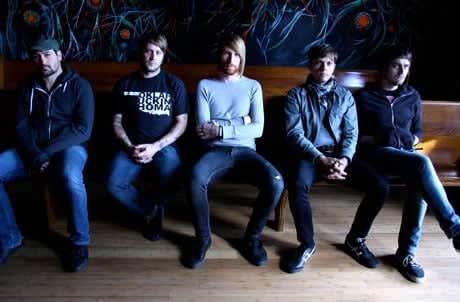Miami, Florida's Poison the Well started pushing the boundaries of aggressive music in 1999 on their first album, The Opposite of December... A Season of Separation; it featured breakdowns that transitioned to harmonic verses while clean vocals and metal riffs were paired with slamming hardcore tempos. "As much as I love our older records, it's a very narrow scope sonically," says guitarist Ryan Primack of that sound, which became hugely influential in metalcore.
A decade on, Poison the Well's ever-evolving sound has become more focused, even mature. "We are into music that's more polite than when we started out, and the constant influx of new music keeps things fresh for us," Primack reveals. Their latest, The Tropic Rot, is another step past a line the band were bound to cross; maintaining familiar hardcore elements while incorporating slow and tense tempos, instrumentation that steps outside of aggressive music's mosh pit and lyrics that show a rotting side of Miami's sunshine persona.
Regardless of the band's aversion to their humid hometown, they're finding solace in their quest to transcend musical boundaries. Just don't tell them that's what they're doing. "If I said yes, I'd feel like I was being really self-involved and narcissistic," Primack says. "I think it would be presumptuous to say that I'm any sort of authority to say what is pushing any musical boundaries, but I think the intention is there. That's the most important intention of the band."
A decade on, Poison the Well's ever-evolving sound has become more focused, even mature. "We are into music that's more polite than when we started out, and the constant influx of new music keeps things fresh for us," Primack reveals. Their latest, The Tropic Rot, is another step past a line the band were bound to cross; maintaining familiar hardcore elements while incorporating slow and tense tempos, instrumentation that steps outside of aggressive music's mosh pit and lyrics that show a rotting side of Miami's sunshine persona.
Regardless of the band's aversion to their humid hometown, they're finding solace in their quest to transcend musical boundaries. Just don't tell them that's what they're doing. "If I said yes, I'd feel like I was being really self-involved and narcissistic," Primack says. "I think it would be presumptuous to say that I'm any sort of authority to say what is pushing any musical boundaries, but I think the intention is there. That's the most important intention of the band."
